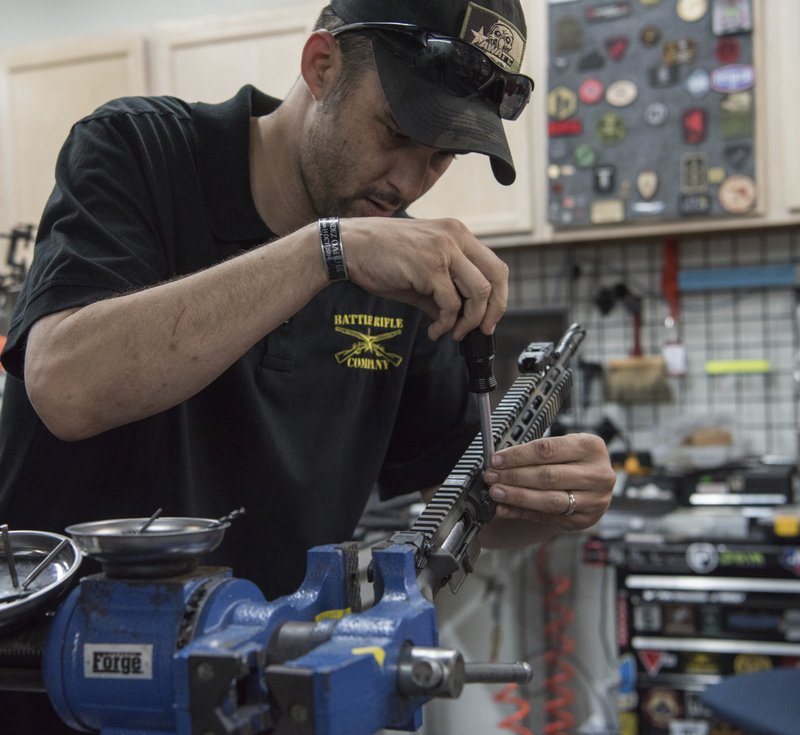WEBSTER, Texas -- The gun industry appears poised to shrink under President Donald Trump, analysts say, thanks to subsiding fears about gun rights with a staunch advocate in the White House and Republicans ruling Congress.
Fears of government limits on guns led to a surge in demand during President Barack Obama's tenure, and manufacturers leapt to keep up. Over the decade ending in 2015, the number of U.S. companies licensed to make firearms jumped 362 percent. But since Election Day, sales have dropped and the bubble appears to be bursting.
"When you take away Barack Obama and you give the Republicans control of both houses of Congress, which is extremely friendly to the gun lobby, then the political pressure subsides," said Robert Spitzer, political science department chairman at State University of New York at Cortland. "And that surely is at least a key part of the explanation for the drop-off in sales."
The pendulum swing is not lost on employees of outfits such as Battle Rifle Co., a small enterprise tucked into a nondescript strip mall outside Houston, with a storefront section featuring cases filled with handguns and walls lined with assault rifle-style weapons. The manufacturing floor and its eight employees, all veterans of the military or law enforcement, occupy the back.
"President Obama was the best gun salesman the world has ever seen," said production manager Karl Sorken, an Army veteran and self-described liberal who voted for Obama and notes that the change for the industry under Trump is a topic of conversation in the shop.
"You might have people who were more inclined to buy because they were worried they might not be able to later. That's going away for sure," he said. "But by the same token, the shooting sports in this country are going to explode because they're not going to be as worried or restricted about how they can shoot, where they can shoot."
There are nearly 10,500 gunmakers in the country, many of them founded since 2000, said Larry Keane, senior vice president and general counsel for the National Shooting Sports Foundation. Experts say many are drawn to long guns, in part because sales for them rose after a ban on "assault weapons" expired in 2004 and politicians' threats to again restrict them drove demand. At the same time, shooting sports grew in popularity, and returning veterans sought out weapons with which they became comfortable in Iraq and Afghanistan.
From 2004-13, sales of all handguns -- pistols and revolvers -- increased nearly fivefold, according to industry figures. Sales of rifles tripled in that time frame.
Battle Rifle took shape in the middle of that surge. The company formed in 2010 after its founder Chris Kurzadkowski ventured into his garage to build his police officer son a rifle from scratch.
Now, the retail store in the front of his shop has a cozy seating area, a TV and coffee with such names as AK-47 Espresso Blend. The craftsmanship happens in the back, where the all-male crew creates custom-made rifles, providing a bit of artistry and a love of long guns, the Second Amendment and precision.
Battle Rifle sells about seven guns each week. Prices range from around $700 to as much as $4,000, depending on accessories, specifications and custom paint jobs. About 60 percent of the company's weapons are sold to police officers.
Sorken said he's confident the industry will stay on the upswing, even if not at the rate seen in recent years.
"In this country, the gun culture is so strong, I'm not worried about it going anywhere," Sorken said.
A Section on 04/02/2017

